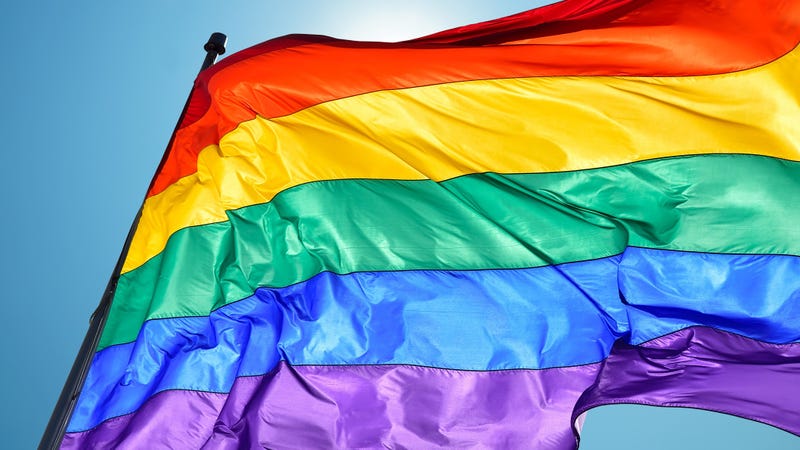
PHILADELPHIA (KYW Newsradio) — Florida’s so-called “Don’t Say Gay” law has created pointed debate, but competing political narratives have twisted public understanding of what Florida House Bill 1557, signed into law by Gov. Ron DeSantis, actually includes.
“It's a law that regulates public schools [with] a restriction on teachers when it comes to certain kinds of classroom instruction,” said Tobias Wolff, a law professor and deputy dean for equity and inclusion at the University of Pennsylvania Carey Law School.
Listen to Wolff's full conversation with KYW Newsradio In Depth's Matt Leon.

It says, in part, “Classroom instruction by school personnel or third parties on sexual orientation, or gender identity may not occur in kindergarten through grade three, or in a manner that is not age-appropriate or developmentally appropriate for students in accordance with state standards.”
“That's the language that people have labeled as the ‘don't say gay’ language and ‘don't say trans’ as well, for that matter,” Wolff explained.
“Apparently, the civil rights movements for gay and trans people are not allowed to be spoken of in the schools, which is a big deal. But the thing is, that language about instruction is very broad and encompassing language. If you look at case law that deals with school instruction, when lawsuits happen about that topic, ‘instruction’ basically means anything that happens, anything that gets discussed inside the classroom. [What] this law means is that teachers may feel like they can't even talk about the existence of gay people at all, or the existence of trans people at all.”
However, the vagueness of ‘classroom instruction’ isn’t the only problem Wolff has with the law’s wording.
“There's also a bunch of other provisions in the law that are framed as parental notification and control provisions, and they have to do with disclosure to parents of health-related issues, health-related gathering of information by schools about students, and a series of statements to the effect that school officials, teachers staff, are not allowed to have conversations with students in which there's any sort of preference for keeping those confidential conversations confidential,” he said.
“I think we all sort of understand that part of the function of good teachers and good school staff and administrators is to be a trusted resource for students. If students are aware that anytime they have a conversation with a teacher or a staff person or health official at school about, for example, questions that they have about sexual orientation, that the school is being instructed that they can't make that a private conversation, that have to go immediately let the parents know about it, students are not going to turn to their teachers.”
Wolff also sees concern about how, similar to the Texas abortion law, the capability for parents to sue school districts for damages if they believe the school district violated the restrictions within the law.
“Imagine that you're a school district, and you're looking at this law. You don't know exactly what the boundaries of classroom instruction mean in this context. You have parents of some of the students in your district, maybe even only a handful of them, who if they hear any suggestion that their kids are hearing about the existence of gay people in any way, they're going to bring a lawsuit and potentially subject a district to a crippling liability that it can't afford,” said Wolff.
“My fear is that districts are going to simply say to teachers, what we are instructing you to do is to stay as far away from any reference to gay or trans people of any kind as possible, basically erase their existence from the entire life of the school. And that's not just an instructional pedagogical concern. That's a concern about the equal access of education to students and what it does to young people to have their existence erased from the world that they're living about. That's the broader implication of this law that I think is the most concerning.”
Wolff believes that DeSantis and other politicians are using the “Don’t Say Gay” law and similar legislation as “wedge” or “exploitation” politics at the expense of the mental and emotional health of LGBTQ children.
“Some very dedicated anti-LGBTQ advocates pick their moment and pick their spot, and were able to sell these bills as something that politicians could use to curry favor, both with their base, but also with parents who may not have thought very carefully about what these bills mean, but just want to have a sense of greater control for their kids and their education,” said Wolff.
“I worry a lot [about] the fact that these laws are targeting a really vulnerable population of kids [who are] at risk of being bullied, who are at risk of not having supportive households. Gay and transgender kids are massively over-represented in foster care systems, because a lot of them wind up having unsafe situations in their birth homes, and they run away. They're at much greater risk for mental health impacts because of this kind of hostile atmosphere, including the possibility of harming themselves. It's just urgently worrying, and I think we're just at the beginning of a wave of this legislation.”
Listen to Matt Leon's full conversation with Dr. Wolff below.




